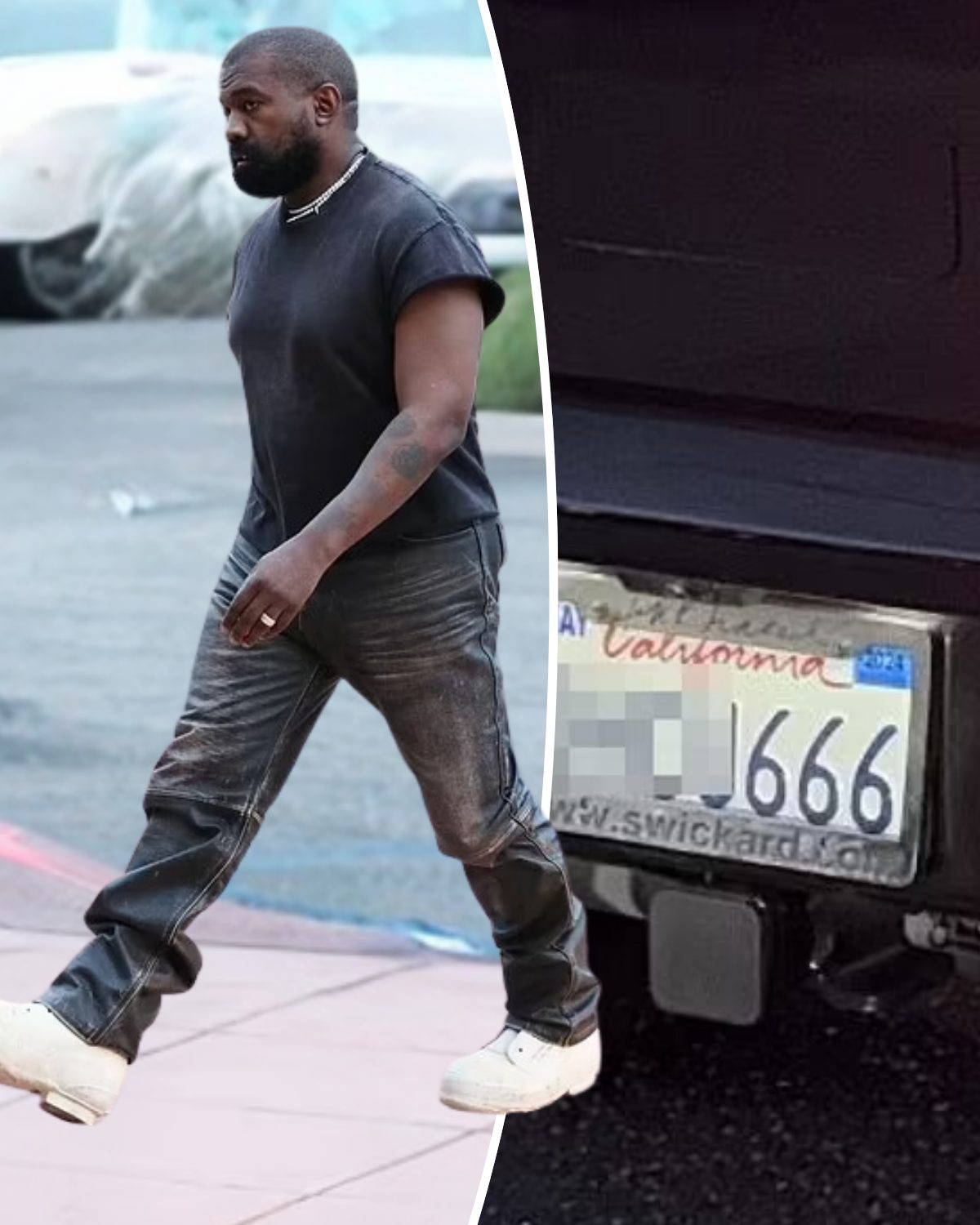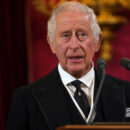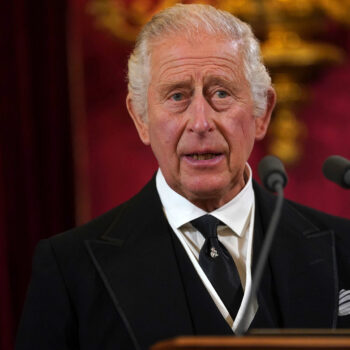
Lynyrd Skynyrd: the indomitable Southerners
Born in Florida, Ronnie Van Zant has the blood of the American South, known as “redneck”, a pejorative term for straightforward and rude country people. Van Zant goes above and beyond. Although he is not tall, his aggressive nature is what helps him win most of the fights at the pub.

It’s called a glove match in the truest sense because Van Zant is willing to run home to get his father’s and grandfather’s gloves to bring to the fight. In addition to the duels with strangers, his friends were not spared. When they were annoyed, he beat them. Of course, when it’s done, it’s back there. Even with a group of strangers at a bar, punching each other and then clinking glasses, only the loser has to pay.
In 1964, as soon as Van Zant turned 16 and got his driver’s license, his father bought his first son an old Chevy Corvair. Knowing his son’s aggressive and defiant nature, the father still did not expect that he would soon cause an accident with broken ribs, and then crash the car into a ditch, in less than 2 years.
He swore to himself that he would never buy a car for his son until he learned some caution in his character. Although in the end, he broke that vow and bought another car for Van Zant, he still worriedly told his wife that he was afraid that his reckless son would have a hard time reaching his 30th birthday.
Sadly, what he feared came true, only the car was not the cause of the tragic accident that later occurred for Ronnie Van Zant and the band Lynyrd Skynyrd.
1. Despite the hard-to-pronounce name
The members of Lynyrd Skynyrd may play music well and be good for their age, but naming a band has certainly never been the talent of Van Zant and his brothers.
When they first played music, they changed many names, including One Percent, which was tattooed on their bodies by the large motorcycle driving association, as a symbol of the proportion of the population that is passionate about this type of vehicle. The purpose of the band was actually to avoid getting into trouble with that association, but it still didn’t work out. The band still cannot avoid being teased. However, for a band with an aggressive and fiery leader like Ronnie Van Zant, it’s not easy to be bullied. Every time that happens, all it takes is a single “F*** y**” for both sides to attack each other in a big fight. However, they finally said goodbye to the name One Percent because they were ridiculed as a band with only 1% Talent, not because of the above fights.
Van Zant and the band came up with a more unique name.
Lynyrd Skynyrd derives its name from Leonard Skinner, the black-hot gym teacher at Robert E. Lee High School, where the three band members, Ronnie Van Zant (singer), Gary Rossington (guitar), and Bob Burns (drums) attended. Mr. Skinner specializes in severely punishing Van Zant and Rossington because of their long hair. Playing Rock music is a must. But the teacher did not sympathize.
The day Rossington decided to follow in Van Zant’s footsteps and drop out of school to focus on the band, before leaving, he met Skinner and looked straight into his eyes and said two words of goodbye: “F*** y**” .
The name related to this teacher seemed to make waves in the city of Jacksonville because many of the band’s audience had studied at this school and had the opportunity to meet Mr. Skinner.
The word “skinner” in a Southern American accent sounds even more mocking. The meaning “skinner” at that time was used for farm farmers who specialized in herding mules and horses. So the name “Leonard Skinner” when read sounds like “Leonard Skinner Association”. And when Ronnie Van Zant jokingly asked the audience about their opinion if he changed the name of his band to the name of the gym teacher, the cheers of response from the crowd below were the motivation for the band to officially get stuck. stuck with a stage name that later became legendary. The band even changed the spelling to avoid trouble with Mr. Skinner: Lynyrd Skynyrd.
Admittedly, this name has never been a good name for a band. It was difficult to read, and the pronunciation was thick with the drawl of the Southern region of the United States, which at that time was not the cradle for many famous music names at that time, except for the Allman Brothers Band. Therefore, when they first entered the market, the band took care of logistics and support at record stores instructing buyers how to pronounce the band’s name correctly. They also carefully named their debut album with the oddly phonetic name “(Pronounced ‘Lĕh-‘nérd ‘Skin-‘nérd)”. And Lynyrd Skynyrd suddenly went from a name that was difficult to remember and pronounce to become an attention-grabbing and unique name.
2. Regardless, the market doesn’t need another Allman Brothers
Lynyrd Skynyrd’s music is similar to the nature of Ronnie Van Zant. At least to listeners from other parts of America at that time. It’s as “unpleasant” as the cold look and attitude of Southerners like Van Zant – who is considered the most aggressive kid in the region. The same goes for Gary Rossington (guitar), two years younger than Van Zant and skinny, so he was scared to death of the group leader’s face.
Then there was the time Van Zant, Rossington and Bob Burns (drums) went looking for Allen Collins to join the group as a second guitarist. Having the reputation of inviting people to join the band without knowing how terrifying the leader’s eyes were, Collins immediately ran into fear as soon as he saw him from afar, dropping his bike and rushing into the forest. . He only stopped when he learned that Van Zant came to see him with the purpose of recruiting him to the team when he heard about Collins’ outstanding guitar talent. After being afraid of Mr. Van Zant, Collins became afraid of being beaten up by the guys in the band he was playing in. As if it was possible, Ronnie Van Zant, Gary Rossington and Bob Burns aggressively rushed to the place where the young band members were gathering to show off their power. Of course, the group agreed to let Van Zant lift Allen Collins rather than fight with the man who had already stripped off his shirt and threatened him.
Van Zant’s way of leading the group is similar to a martial law environment. Where the band rehearsed and composed for their first two albums, this house called Hell House is as hot as an oven on summer days. Unable to install air conditioning, a refrigerator and a few bottles of beer were the only things that cooled everyone down. Yet Van Zant forced Leon Wilkeson to practice bass separately with Bob Burns’ drums until the two sounds became one. Or else, Wilkeson will be kicked out like the previous bass member. Imagine how miserable it was for an overweight guy like Wilkeson to work with Burns and sweat for hours until the beat was tight.
When the band is complete, I want to repeat it here so readers don’t forget the names: 1- vocals by Ronnie Van Zant, 2&3- double guitars by Gary Rossington and Allen Collins, 4- bass by Leon Wilkeson (later This version included Ed King as a stand-in whenever Wilkeson disappeared, and when he was present, King switched to the third guitar role), 5- drums by Bob Burns and later 6- piano/keyboards. played by Billy Powell; Lynyrd Skynyrd’s music is still difficult for record labels to access.
Despite the dedicated efforts of manager Alan Walden, who closely followed the band from the difficult and difficult early days to the times when they were broke, the record companies all refused to sign the contract on the grounds that “their music is similar to their music.” by Allman Brothers Band” too. In the music market at that time, it seemed like just one famous Southern Rock band was enough. Ironically, Walden’s biological brother is the manager of the Allman Brothers Band and owns the Capricorn record label, but still gently rejected his younger brother to sign a recording contract with Lynyrd Skynyrd.
If we compare the music between Lynyrd and Allman, music listeners have had the opportunity to watch Lynyrd open for Allman and make a clear comparison. Lynyrd plays Blues, Country with a stronger Rock sound. Except for the band’s song “Free Bird”, all other songs only need 3-4 minutes to be thoughtful, complete and neat. Along with the Southern Rock sound, Allman is influenced by Jazz so they play more jam songs and therefore they prefer to perform and record live albums rather than the studio. Lynyrd understands that, so they don’t care about competing with Allman in this regard. Even Phil Walden, Alan’s older brother and Allman Brothers manager and record label owner, was also present. But that difference was still not enough to convince Phil, even though the audience’s reaction was very interested in that opening part.
The thing is, not everyone is like Phil. The record label bosses and Phil may think there is no place for another Southern Rock band other than the Allman Brothers Band. But the reality is that music listeners’ hearts still hold back for Lynyrd Skynyrd and other Southern Rock artists.
3. Despite Lynyrd Skynyrd’s difficult-to-market music
Beneath Van Zant’s unpleasant appearance, this leader’s true nature is someone who values brotherhood very much. He has sympathy for Gary Rossington because he has lacked a father figure since childhood, something he always cherishes in his “not equal but satisfied” relationship with his father. He was willing to give credit and share 1/7 of the royalties with Leon Wilkeson even though he only participated in the rehearsal stage (but was the one who wrote the bass part for Ed King to record later). Because as the eldest brother in the group, Van Zant gradually matured in responsibility and valued his companions from the beginning as a family.
The relationship between members of Lynyrd Skynyrd is the same. While jamming together, fists flew. Whoever plays the wrong game gets punched. Argue an issue, get punched. But after that everyone happily jammed together. Therefore, only those who have been in contact for a long time can understand the blunt and honest nature of Southerners.
Lynyrd Skynyrd’s music is the same. One time the whole band performed at the Funochio bar. That day, Van Zant received news that his grandmother had just passed away. Going to meet the owner, Van Zant and manager Alan Walden asked to cancel the show but only received a curt refusal: “The old woman is dead anyway, so you guys just keep performing.” Van Zant restrained himself as much as possible and performed with the band until the last song “Free Bird”, which was when he let out all his anger. He discharged it into the speakers, he discharged it into the pile of chairs below. The audience ran and booed, and the police came. But after that time, Lynyrd’s reputation skyrocketed thanks to that extremely high-quality show. Even though the restaurant was destroyed, the owner still reached into his pocket to pay the salary because he witnessed how crazy Van Zant was, and even the customers who came to the restaurant also wanted to see Lynyrd Skynyrd perform again.
If you just listen to the music on Lynyrd’s first disc, you can partly imagine how attractive that music is, especially when heard at close range and in small spaces like pubs. For me, the quality of Blues music is always something that makes me more biased thanks to the way of resolving tension in the song, which, although easy to predict, is never satisfying enough.
With Lynyrd, they also have a lot of added spice. It’s a tight rhythm section that Van Zant wanted from day one, in which the bass line that Leon Wilkeson came up with plays a huge role in the band. It follows Bob Burns’s drums as in “Gimme Three Steps” (although the bass is performed smoothly by Ed King after learning from Wilkeson, and also adds artful notes and hooks) and occasionally emerges. along with the sound of the guitar warming the space of the song.
The guitar duo of Gary Rossington and Allen Collins plus third guitarist Ed King is probably Lynyrd Skynyrd’s “specialty”. Between Rossington and Collins, they decided not to divide who leads and who rhythm, but to alternate that role. Their guitar sounds blend together like twins. King, the third guitarist (sometimes playing bass if Wilkeson lets the group climb trees) focuses on the rhythm section to act as a bridge. Lynyrd’s 3 guitars may seem too thick but they are not. The three guitars help the band execute the string ideas that seem to be running in parallel, but there’s always a note on one guitar that’s threatening to jump out, like in the solo in the song “Simple Man”. Furthermore, the 3-guitar sound creates a ballad melody in the verse, in stark contrast to the chorus, which has a guitar riff that feels like a punch in the face.
The 3 guitars sound dense but are softened and counterbalanced by the beautiful bluesy piano part of Billy Powell, an artist who remained until later in life becoming a member of Lynyrd. “Things Goin’ On” is probably the few on the disc where each member fully utilizes their talents. The opening guitar riff is very effective with the harmonic part in between. The dull bass line plays extremely well then makes the main character emerge above the guitar to accompany and contrast with Ronnie Van Zant’s voice. Then Powell’s jubilant piano interlude stands out in the spotlight, with a wonderful variation. Then it’s the turn of the guitar solo, which is surprisingly simple and effective.
Ronnie Van Zant’s voice has enough soul in it to attract even though he doesn’t need the high, difficult notes. Lynyrd Skynyrd’s songs are all calibrated to fit Van Zant’s most comfortable vocal range. And with the exception of a few songs, the band did not focus on backing vocals, which was quite common in music at that time, with the intention of letting the members focus on their instruments and let Van Zant’s voice sing. clear, rustic but as authentic as possible.
That’s it, Lynyrd Skynyrd may not have any member as superior as a virtuoso, each of them is good enough to form a tight-knit band. Thanks to that, Lynyrd Skynyrd was able to survive when they had the opportunity to open for The Who, a once-in-a-lifetime opportunity that helped them reach an audience of tens of thousands of people for the first time, instead of a few hundred people at previous bars. . The funny thing is that in the end these guys from the South, famous for their aggression, now seem more mature and calm than the thrashing style of Pete Townshend and The Who. Musically, the Rock sound of that distant land was powerful enough to convince Townshend himself and fans of The Who.
And when the market had the opportunity to listen closely to Lynyrd Skynyrd’s music, they were convinced by the straightforward and personal Southern Rock music of the Southern band of the indomitable.
But then…
4. The fateful flight is not for the indomitable Southerners
After an unexpectedly successful performance at the Funochio bar, fate led them to meet Al Kooper – a respected artist who had collaborated with Bob Dylan and the Rolling Stones. At that time, Kooper was planning to find a band to represent the American South. Sitting and watching Lynyrd Skynyrd perform at Funochio, it wasn’t until the third night that he was absorbed and impressed by the strange combination of Blues music and realized it was the music he was looking for. Kooper asked to jam with the band. Van Zant and the members knew of his reputation and they happily agreed. When Van Zant shouted out the song “Mean Woman Blues” in C#, Kooper was a little startled because not many people play in that key when the two consecutive tones, C and D, are much easier to play. Only later did he understand that this was Van Zant and the band’s way of “cleverly refusing” uninvited guests who wanted to jam with them, even if it was the famous Al Kooper.
Of course, Kooper played well and he later signed a recording contract with Lynyrd Skynyrd for an even better price. He directly produced music for the band’s first three albums and brought them to the peak of glory. “Free Bird” and “Sweet Home Alabama” became classic songs representing Lynyrd and Southern Rock.
In the song “Free Bird”, Ronnie Van Zant’s lyrics include:
“Lord knows, I can’t change
Lord help me, I can’t change
Lord, I can’t change
Won’t you fly high, free bird, yeah”
In fact, since his days of struggling with the band, Ronnie Van Zant has changed the way his father always wanted his son. As the band’s leader, he becomes more mature, less aggressive and careless. And just like that, his father’s previous fears should have disappeared, but fate did not let Van Zant and Lynyrd Skynyrd go.
If a difficult-to-pronounce name like Lynyrd Skynyrd hinders their path to success, they still continue to persevere in pursuit. If the market seemed to only have room for one Allman Brothers Band, Lynyrd still tried to reach out beyond being a local band to prove that their Southern Rock music was different and could impress Al Kooper. , with Pete Townshend and The Who, and the music market.
Sadly, the fruits of Van Zant and the band’s stubborn defiance were extinguished by fate the day Lynyrd Skynyrd stepped on a Convair plane for the second time on October 20, 1977. although drummer Artimus Pyle (who replaced Bob Burns) had felt problems with the plane’s engines during a previous flight. Fate let go of the Aerosmith band when both Steven Tyler and Joe Perry asked to rent the same plane for their US tour also in 1977, but the band refused after the band’s management team realized the quality. of the plane and the two pilots were not qualified.
That miracle did not come to Ronnie Van Zant and Lynyrd Skynyrd. The plane crashed into the forest after losing all fuel. That collision claimed the lives of Van Zant, Steve Gaines (guitarist for Ed King), Cassie Gaines (backup singer and Steve’s sister), assistant band manager and two pilots. The remaining members were all seriously injured.
That terrible accident happened just 3 days after Lynyrd Skynyrd’s fifth album, Street Survivor, was released. The scary coincidence is that the album cover shows the band standing in the middle of a sea of fire, causing the record company to quickly replace it with a photo with a simple black background.
The day Ronnie Van Zant passed away forever, he was only 29 years old and had not yet turned 30, exactly what his father had worried about.
I suddenly wondered if Van Zant’s father had at some point wished that one of the above things had never come true, so that his son could return to his studies and get a job. stable, like a Southerner who has been diligent throughout his life like him.
But the reality is just a little different, he can also be proud to call himself “Father of Southern Rock”. Instead of the wall hanging with Ronnie’s diplomas, he could cover them with gold records that his son and the band brought.
And most of all, he can comfort himself with the fact that Ronnie Van Zant did not have to go through moments of panic on that flight. He fell asleep on the flight using sedatives after staying up all night before. Ronnie was an indomitable bird flying freely as soon as he boarded that fateful flight.
“If I leave here tomorrow
Would you still remember me?
For I must be traveling on now
‘Cause there’s too many places I’ve got to see”
RIP Ronnie Van Zant (October 20, 1977) – plane crash
RIP Steve Gaines (October 20, 1977) – plane crash
RIP Cassie Gaines (October 20, 1977) – plane crash
RIP Allen Collins (January 23, 1990) – chronic pneumonia after being bedridden due to a car accident in 1986
RIP Leon Wilkeson (July 27, 2001) – chronic obstructive pulmonary and hepatic disease
RIP Billy Powell (January 28, 2009) – heart attack
RIP Bob Burns (April 3, 2015) – car accident
RIP Ed King (August 22, 2018) – cancer

See you again!















